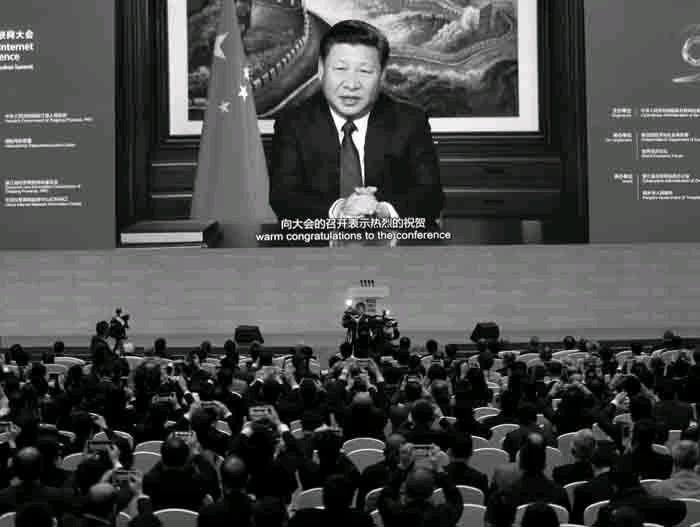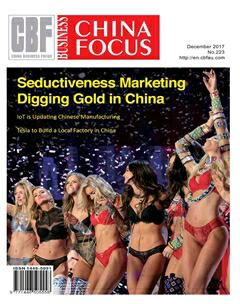China will Pick up the Pace on Reform
China will continue to strike a balance among stable growth and risk control while pushing forward structural reforms next year, the top decision-making body of the Communist Party said ahead of a key policy-setting conference. The Politburo, chaired by President Xi Jinping, looked at Chinas economic conditions and needed policies for the coming year. Later this month, the Politburo and other senior officials will set the 2018 economic agenda at the annual Central Economic Work Conference.
The Politburos vision for 2018 is a combination of ongo- ing efforts to transform the economy while controlling risks, and improving peoples livelihoods and curbing pollution.“Promoting high-quality development will be the fundamental requirement for determining the thinking on development, formulating economic policies and implementing macrocontrol measures,” the Politburo said in a statement after the meeting.
The meeting was held at a time Chinas economic growth appears set to beat the governments target of “around 6.5%”set in March. Economic growth in the first three quarters hit 6.9%, boosted by stronger exports—exports rose in Novem-ber at the strongest pace in eight months—and a rebounding manufacturing sector. Analysts expect the pace to moderate in the final three months of the year. The slowdown is likely to continue into 2018 as the government moves forward with its supply-side structural reforms that include curbs on capacity in many industrial sectors. Amid these challenges, China also has some of the worst air pollution in the world, as well as soaring housing prices, wide disparities in wealth and uncertain job prospects for its youth. The Politburo vowed to take on such challenges, even as they may slow economic growth.
The government “will adopt more sophisticated measures to target poverty groups and provide support, combine poverty lifting efforts with education and inspiration measures to encourage the poor populations internal motivation to enhance the quality of poverty alleviation efforts,” the Politburo said.
On the economy, the Politburo pledged to continue efforts to reduce excessive macroeconomic leverage ratios and direct the financial sector to better serve the real economy—the part actually producing goods and services—in order to prevent major risks.
Last year, the countrys regulators initiated a sweeping campaign to cut excessive leverage, rein in risky investments and root out misdeeds in the financial markets. A slew of policies have been issued to tackle risks related to lightly regulated lending and other financial activities known as “shadow banking,” as well as local government borrowing and online financial activity.
Policy makers vowed to further open up the economy, push forward balanced development among regions and boost rural development.
Policy makers also vowed to speed up reforms in the countrys housing market and establish a long-term mechanism to promote healthy development of the property sector.
More people in China now consider themselves middleclass, according to a report released on Monday by the Chinese Academy of Social Sciences.
The Annual Report on Social Mentality of China said 40.5 percent of people believe they are middle class, an increase on previous years, although it didnt provide any comparable data.The finding is based on an online survey of more than 22,660 randomly selected residents nationwide.Ten percent identify as higher class, while most respondents, including those who believe they are lower class, expect the next generation of their family to enjoy a higher social status than them, the report said.People born in the 1990s had the lowest level of happiness, scoring 4.03 out of 7, while those born in the 40s had the highest level, 4.32, it added.
Chinas endeavor to foster a new form of international relations and build a community with a shared future for mankind will be the overarching goals of Chinas foreign policy in the years ahead, Foreign Minister Wang Yi said.Wang stated the goals in his keynote speech at a symposium on Saturday in Beijing about the global situation and Chinas diplomacy. The symposium, attended by diplomats and researchers, was themed on international developments and Chinas diplomacy in 2017.Noting that the 19th CPC National Congress had charted the course for Chinas external relations, Wang said that China needs to create a more favorable external environment and stronger external impetus to create a moderately prosperous society in all respects.
“For Chinas diplomacy in the new era, we will take a longer and broader perspective and be even more open-minded and resourceful,” he said.The foreign minister reiterated that“war is by no means acceptable” in dealing with the Korean Peninsula nuclear issue, stressing that the possibility of negotiation remains.”China has put in more efforts and borne a greater cost than any other party in addressing the Korean Peninsula nuclear issue,” he said, adding that China has implemented UN Security Council resolutions.While talking about the Middle East, Wang said that China has always firmly supported the Palestinian peoples efforts to restore their lawful rights.”We support the establishment of an independent Palestinian state that enjoys full sovereignty, with East Jerusalem as its capital and based on the 1967 border,” he said, adding that the status of Jerusalem must be determined through dialogue and negotiation on the basis of UN resolutions.

Mentioning that President Xi Jinping and US President Donald Trump have had three meetings and many letters and phone calls this year, Wang said that the two leaders sound interactions have provided “a strategic anchor to what is the most complicated and consequential relationship in the world”.”China is willing, on the basis of mutual respect, to live peacefully with the American superpower. The US needs to understand and accept a China that is following its own path of socialism with Chinese characteristics, one suited to its own conditions,” he said.Xi and Russian President Vladimir Putin have met five times throughout the year, and the ChinaRussia relationship has become a major cornerstone for world peace and stability, fairness and justice, and win-win cooperation, Wang said.
Noting that the China-proposed Belt and Road Initiative has become “the most popular international public goods program”, Wang said that Chinese businesses have invested over $50 billion and created nearly 200,000 local jobs in countries that are participating.China will prepare for the Shanghai Cooperation Organisation Summit to be held in Qingdao, Shandong province, in June and the first China International Import Expo in November in Shanghai, Wang said.Sun Zhuangzhi, secretary-general of the SCO Research Center affiliated with the Chinese Academy of Social Sciences, said that the selection of Qingdao as the host city reflects Chinas advocacy of the Belt and Road Initiative.
Qingdao has both land connections with Europe via railways and maritime connections with other countries, he said, adding that the city plays an important role in develop- ing the initiative.Zhou Shijian, a senior researcher on ChinaUS trade relations at Tsinghua University in Beijing, said that the Belt and Road Initiative will promote global economic development and balance the north-south gap, which also will contribute to building a community of shared future for mankind.
The International Import Expo will be a good move for the countrys diplomacy in 2018 because expanding imports will promote the economic development of China as well as improve relations with other countries, he said. Chinas economic growth for 2017 appears poised to beat the governments 6.5% target set in March, despite analysts expecting that the fast 6.9% pace of the first three quarters will slow in the final lap of the year.
- 中国经贸聚焦·英文版的其它文章
- Latest Public Official Changes in China
- Exhibitions
- Liu Beixian Former Head of Chinese News Agency Expelled From Party for Graft
- Deng Weigen Former Mayor of Jiangmen,Guangdong under Investigation
- Ni Zhimao PhD student at Peking University act as Deputy Governor of Yuyang
- Qiao Baoping Former Chairman of Guodian Corporation act as Chairman of Na tional Energy Investment Group

